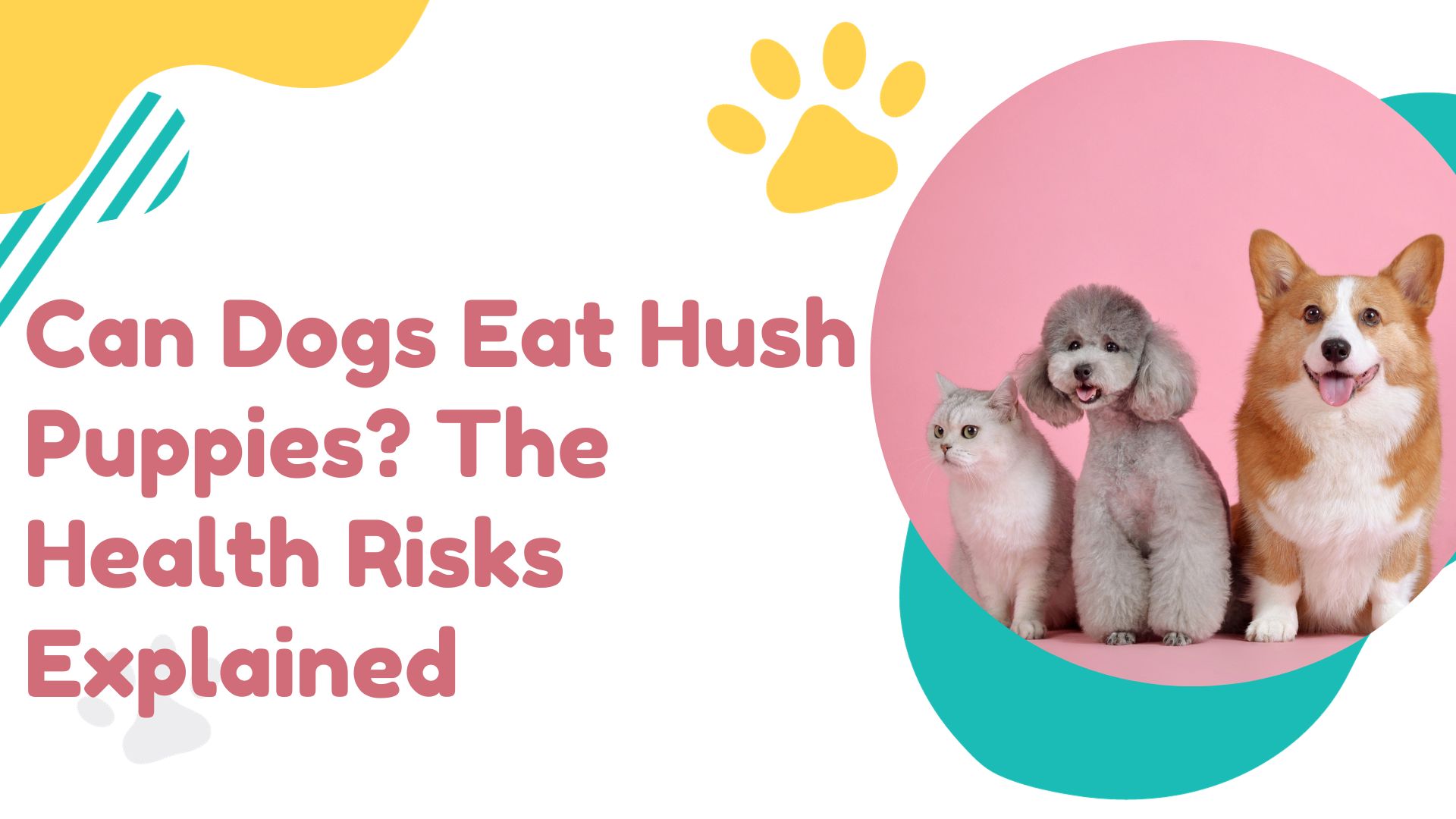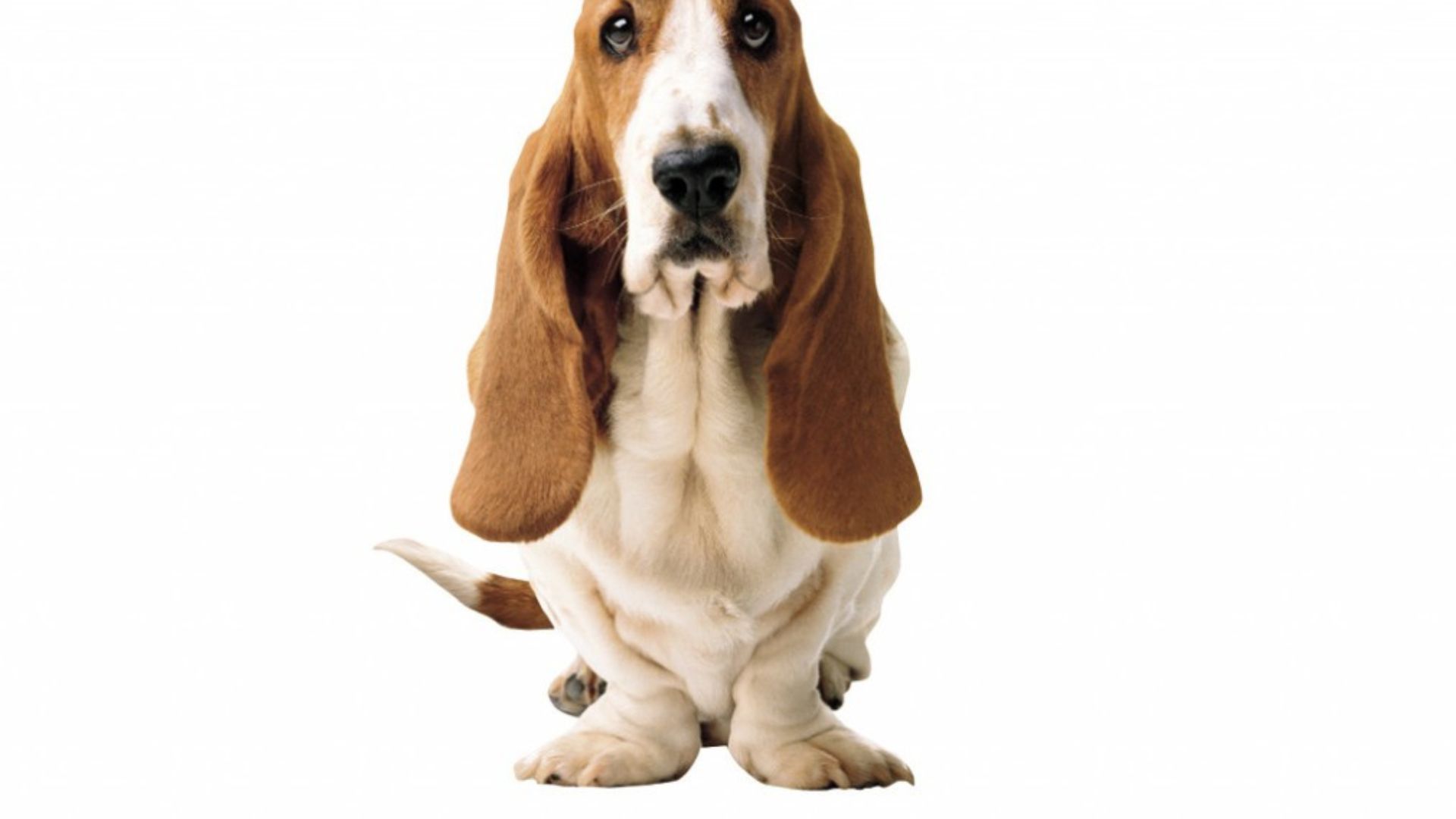Can Dogs Eat Hush Puppies? The Health Risks Explained
Unraveling the Mystery of This Southern Staple for Canine Companions

Have you ever wanted to share some of your freshly fried, piping hot hush puppies with your begging canine companion?
Can Dogs Eat Hush Puppies? While hush puppies may smell tempting to your dog, these savory Southern-fried cornmeal balls can pose some health risks for pups.
Before offering your dog any bites of people’s food, it’s important to understand the ingredients and how they may affect your dog’s health and digestion.
What Are Hush Puppies?
Hush puppies are a ball-shaped fried food commonly found in the cuisine of the Southern United States. According to the American Kennel Club, their main ingredients typically include cornmeal, wheat flour, buttermilk, eggs, onion, and garlic.
They are seasoned with spices like salt, black pepper, paprika, and cayenne pepper. Hush puppies get their crispy exterior from frying, while the interior is soft and fluffy.
They can be served as a side dish, appetizer, or snack.
Hush Puppy Ingredients – Should You Be Concerned?
While individual recipes vary, most hush puppies contain cornmeal, flour, buttermilk, and eggs as primary ingredients.
From a nutritional standpoint for dogs, the main concerns are the potential allergens and the lack of protein and nutrients compared to a high-quality dog food or treat.
According to veterinarians at PetMD, some of the most problematic hush puppy ingredients for dogs are onion, garlic, and other seasonings.
Onions and garlic contain toxins that can damage red blood cells and cause a dangerous form of anemia. Small amounts over time can accumulate. For dogs, the best practice is to avoid onion and garlic entirely.
The Verdict? Hush Puppies Are Too Risky
- Onions and garlic – are toxic and can cause anemia
- Cornmeal and flour – hard to digest
- High-fat content from frying – can cause pancreatitis
- Spices and seasonings – may irritate the digestive system
So, are hush puppies safe for dogs to eat? The short answer is no. The potential toxins, fatty ingredients, and gastrointestinal irritation pose too many risks.
Dogs have a much different metabolism and digestive system compared to humans, so they cannot handle many ingredients in people’s food. Some human food is absolutely off-limits for canine consumption, while others should only be fed occasionally in small amounts.
To demonstrate why hush puppies and most human treats are not nutritionally suited for dogs, here is a comparison of the nutritional information of hush puppies versus Milk-Bone dog treats:
| Nutrient | Hush Puppies | Milk-Bone Treats |
| Fat | 15 g | 1 g |
| Fiber | 1.5 g | 2 g |
| Protein | 3 g | 7 g |
| Calcium | No data | 200 mg |
As shown, commercial dog treats like Milk-Bones contain far less fat, much more protein, added vitamins and minerals, and more digestible ingredients for dogs compared to hush puppies.
While an occasional nibble of plain cornbread may not harm an adult dog, regular consumption of fried corn fritters is ill-advised. Talk to your veterinarian about introducing any non-traditional foods to your dog’s diet.
The Health Dangers of Feeding Hush Puppies to Dogs

But what are the specific health risks and dangers of dogs eating hush puppies? Understanding the potential consequences can help pet parents make educated decisions about their dog’s diet and health.
Onion and Garlic Toxins
Two of the most hazardous ingredients in hush puppies for dogs are onion and garlic. Allium species like onions and garlic contain organosulfur compounds that can be toxic to dogs.
According to veterinarians at the AKC, these compounds can damage red blood cells and cause hemolytic anemia.
Symptoms of onion or garlic toxicity include:
- Vomiting
- Diarrhea
- Abdominal pain
- Pale gums
- Increased heart rate
- Red or brown urine
Even small amounts over time can accumulate and be dangerous. For this reason, it’s best to avoid feeding dogs any foods containing onion or garlic.
High-Fat Content
Another danger of hush puppies for dogs is their high-fat content from being fried. Dog digestive systems have difficulty processing high-fat foods.
According to veterinary nutritionist Dr. Katy Nelson, “Too much fat at once or over an extended time can cause pancreatitis, which is extremely painful and potentially fatal.” Pancreatitis symptoms include vomiting, diarrhea, lethargy, and loss of appetite.
Read More: Can Dogs Eat Clams?
Choking Hazard
The size, shape, and texture of hush puppies also pose a risk of choking. Dogs who wolf down food may not properly chew something round and doughy like a hush puppy before swallowing.
Dr. Nelson warns, “The dense, fried exterior and airy interior of hush puppies could easily cause a choking emergency.”
Safer Treat Alternatives
Rather than risking your dog’s health and safety with high-fat human foods like hush puppies, stick to dog treats and foods designed for canine nutrition. Some healthy snack alternatives include:
- Plain popcorn or rice cakes
- Pieces of apple, banana, carrot, or watermelon
- Baby carrots
- Frozen pumpkin or yogurt
- Peanut butter in a Kong toy
If you want to share a special snack with your furry friend, consult your vet first about dog-safe options. With a little creativity, you can find alternatives that are delicious for dogs without jeopardizing their health.
Your canine companion’s well-being is worth avoiding questionable human foods.
Can Dogs Eat Hush Puppies? Plus, More Safety FAQs
In the previous articles, we learned that hush puppies pose health risks for dogs due to ingredients like onion, garlic, spices, and fat. But many pet parents may be wondering – what about puppies?
Can puppies eat hush puppies or small amounts of human food? Let’s explore some common questions about hush puppies and dogs.
Are Hush Puppies Safe for Puppies?
Veterinarians generally advise against feeding puppies under one-year-old any human food, including hush puppies.
According to the pet health site PetMD, puppies have developing digestive systems that may struggle to handle rich, fatty foods. Spices and seasonings can also irritate their stomachs and cause gastrointestinal distress.
Additionally, the size and shape of hush puppies make them a choking hazard for puppies and small breed dogs.
For optimum nutrition, pet parents should stick to a high-quality commercial puppy food diet approved by their vet. Human treats like hush puppies provide no benefits and only pose risks for growing puppies.
Where Are Hush Puppies Most Popular in the U.S.?
Hush puppies originated in the Southern United States as a staple side dish. According to Southern cuisine historians, hush puppies likely emerged in the Carolinas or Georgia, where cornmeal was a kitchen staple.
Their popularity extends beyond the coastline into states like Kentucky and Arkansas. Outside of this region, the fried corn fritters are less common. But no matter where you live, it’s wise to avoid sharing this human delicacy with your pup!
How Much Hush Puppy Can Dogs Eat Safely?
The safest amount of hush puppies a dog can eat is none. However, if exposed, the general rule is to limit any human food to 10% of your dog’s daily caloric intake.
For a 50-pound dog eating 880 calories per day, this would equal about 5-6 small hush puppy balls maximum. However, any amount of onion or garlic can be dangerous, so consult your vet immediately if ingestion is suspected.
What If My Dog Accidentally Ate Hush Puppies?
If your dog managed to gobble up some hush puppies unintentionally, take caution. Monitor them closely over the next 24 hours for symptoms like vomiting, diarrhea, lethargy, loss of appetite, or abdominal pain.
Call your vet right away if you observe any of these signs. They may advise bringing your dog in for examinations and bloodwork.
To avoid future accidental ingestion, keep all human food safely out of reach of your pet, especially onion/garlic-containing foods.
Consider storing hush puppies in the microwave or oven if needed at a get-together. With diligence, you can keep your curious canine from gobbling up foods that jeopardize their health and happiness.



